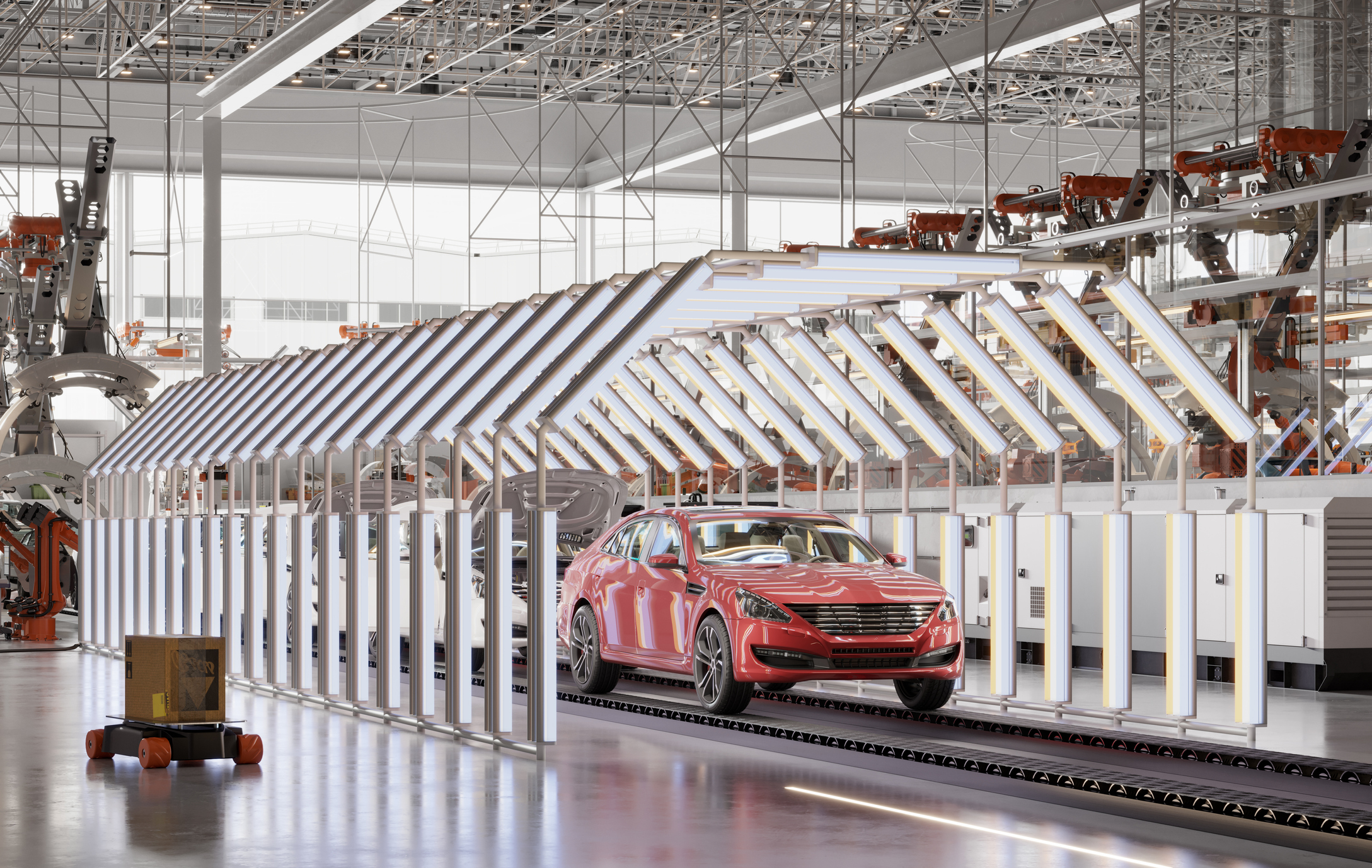Automotive manufacturing hasn’t been the same since the pandemic. Continued supply chain disruptions make sourcing key parts a challenge, leading to low new vehicle inventory and endless frustrations for consumers. Above all, a shortage of semiconductor chips remains the biggest hurdle for vehicle manufacturers today.
While some manufacturers are weathering the chip shortage through careful planning, this is one problem that doesn’t look to be going away anytime soon. Chip scarcity is likely to continue through at least 2023. Add in a price spike for other key manufacturing components tied to inflation and a continuing labor shortage, and the auto manufacturing sector is facing some rough times ahead.
The problems faced by manufacturers affect all aspects of those companies’ supply chains—including their suppliers for material handling systems. To innovate and thrive in these trying times, manufacturers must depend on new material handling solutions and new ways of thinking to streamline processes and bolster efficiency.
Gone are the days when a “just in time” model makes sense for manufacturers. JIT saw a large portion of floor space devoted to manufacturing, leaving little room for spare inventory. This is one reason why production ground to a halt when semiconductors became scarce. With no backstock to draw from, the entire production process was hampered by a lack of a few key components. While devoting valuable space to spare parts inventory once seemed wasteful, maintaining a stockpile of necessary parts is now a crucial measure for success.
Rethinking the role of automation can also help manufacturers overcome modern challenges. This is especially true for the problem of labor shortages. Manual tasks that were just recently performed by human workers are now increasingly handled by machines. From assembling to sorting and moving goods, machines can handle a variety of functions reliably and efficiently. Implementing automation means production will no longer be hampered by staffing shortages, while existing staff are freed up for more complex tasks and potential upward mobility.
New material handling solutions will play a key role in the future of manufacturing. Meeting unique customer needs and rising to meet the challenges ahead will be key. If you’re interested in modernizing your processes through automation or custom solutions, UMD is here to help. Our engineers can design a system to meet your exact needs and streamline your operations. Contact us today to learn more.

